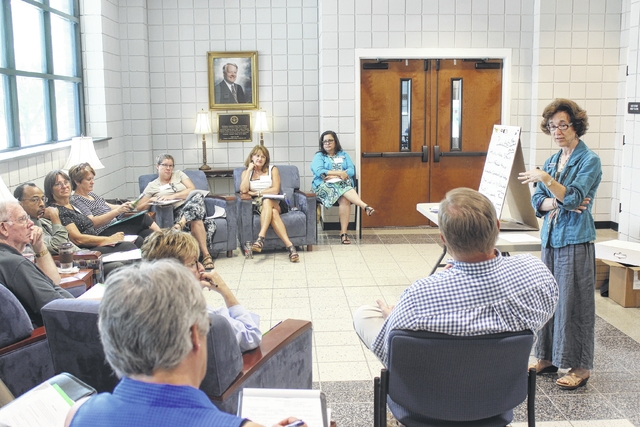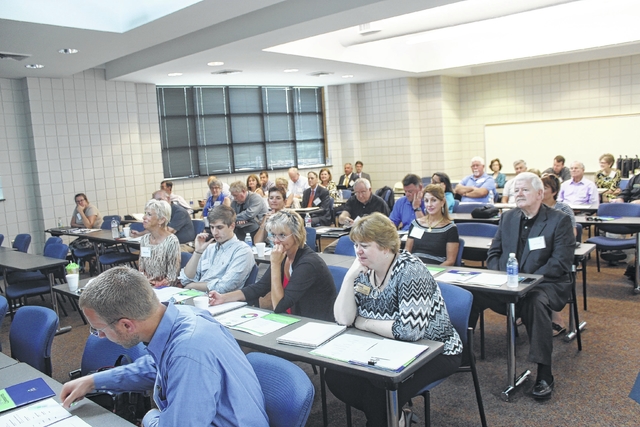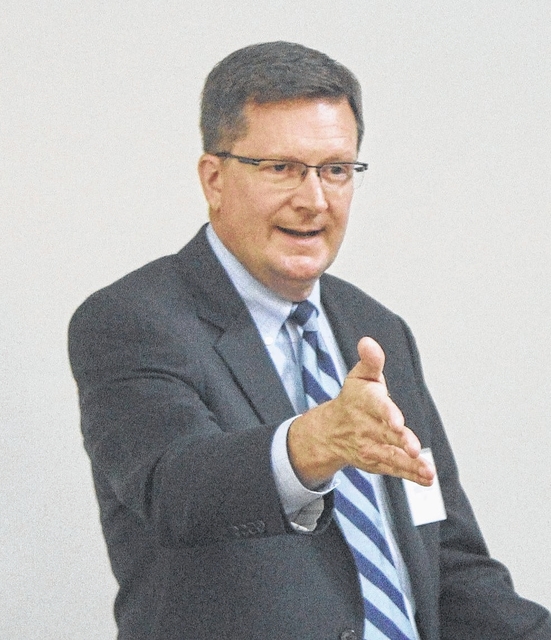


As the president of the Rural Center, Patrick Woodie works to empower residents and community leaders who call the countrysides of North Carolina home.
It’s the reason the organization invited a mix of people from the southeast to Sampson Community College for its advocacy roundtable series.
“These are the folks who are really on the ground working on economic development day in and day out,” Woodie said Tuesday. “They know the region very well and what they have to say, we’re going to be paying a lot of attention.”
Tuesday’s meeting was one of six meetings scheduled to be held across the state. Board directors from the Rural Center adopted a five-step approach for developing rural advocacy agenda. The steps include identifying issues, understanding the issue, formulating evidence-based policy, outreach to leadership and monitoring progress.
“It really highlights the issues that are of most concern to rural communities from one end of the state to the other,” Woodie said about putting the information together in a comprehensive plan.
The Rural Center’s mission is to develop, promote and implement strategies to improve the quality of life in rural communities. Sampson County is one of more than 80 counties served by the organization. Currently, Garland and Roseboro are receiving assistance from the organization’s N.C. Small Towns Economic Prosperity Program (N.C. STEP), which was developed to help towns facing economic hardships.
The event featured breakout sessions which focused on assets, policies and ways to improve rural communities. Woodie noted how important it is for the region to work together, beyond city and county lines.
“With this go-it-alone approach, those days are behind us,” he said. “It’s going to take a lot more collaboration within regions to move the overall economic needle.”
Some of suggestions presented included growing small businesses, providing affordable housing and infrastructure improvements.
“Whether it’s water and sewer, roads or natural gas assets or broadband, those are the foundational building blocks of economic development,” he said. “We have to make sure that we’re developing, upgrading and have access to state of the art infrastructure.”
Dr. Patricia Mitchell, assistant secretary for Rural Economic Development at the N.C. Department of Commerce, participated in a session focusing on place assets. Some of them included active downtowns, celebrating local heritage and recreational opportunities.
“It’s a good discussion and I appreciate being a part of the discussion and listening to what the rural communities are saying,” Mitchell said.
She said it was a good discussion to have on a grassroots level when it came to attracting people to communities.
“To me that’s a very interesting way an beneficial way to look at economic development,” Mitchell said.
Along with infrastructure and renovations, another important matter for Mitchell is leadership and the ability to improve it.
“Without leadership you’re not going to be able to accomplish anything,” she said. “So I think leadership is a significant concern in communities.”
Chris May, executive director for the Cape Fear Council of Governments, attended the session because it was a way to get grassroots support and input on issues that are important to people. For May, some of the them included housing, infrastructure and getting communities to work together.
“So much is done for the urban areas and we feel left behind sometime,” May said. “It’s a great opportunity to ask the people who live here how they feel and what they think are solutions and not just defining problems.”
